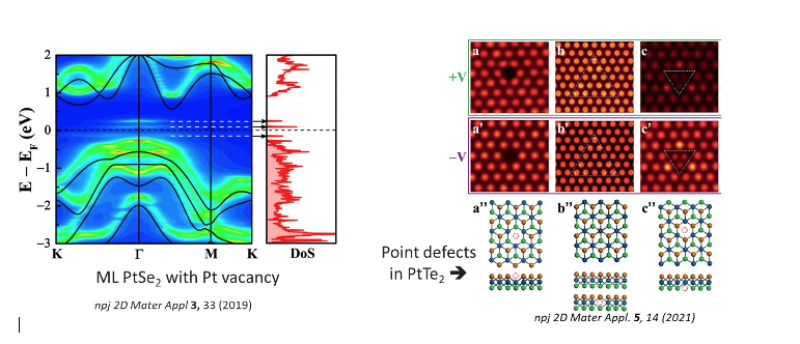EuroCC Academic Flagship - Update 2 Dr Lida Ansari, Tyndall National Institute, UCC

In September 2020, ICHEC announced details of seven academic projects awarded support from the Academic Flagship Programme at the EuroCC_Ireland Competence Centre. This two year programme aims to increase Irish competitiveness in the European supercomputing landscape. The seven successful projects were selected from a competitive call which received 13 proposals from researchers distributed across 17 universities/institutes across Ireland, UK, Spain, France, Germany, Denmark, Japan and the USA. The Academic Flagship Programme operates under the EuroHPC Competency Centre for Ireland which ICHEC recently launched. It is one of 33 similar centres across Europe which form the EuroHPC programme.
The projects span a range of scientific domains and feature ambitious technical software development to achieve cutting edge scientific discoveries. In this update, Dr Lida Ansari, discusses how HPC is assisting her research 'Developing balance between memory and number of cores in parallelization optimization for large system calculations based on DFT and quantum transport.'
'There is a long-lasting bottleneck in demonstrating the true capabilities of atomic-scale simulations and in positioning the outcome of such simulations in direct comparison with experimental results and functionalities. This project will pave the way for achieving a solution for this critical bottleneck in simulating devices and systems (1) with sizes comparable with experimental counterparts, and (2) enabling direct comparison of simulation outputs with exact same type of characteristics obtainexperimentally.'
Commenting on the EuroHPC Competence Centre Academic Flagship, Dr Ansari said,
EuroHPC Competence Centre Academic Flagship is a fantastic programme opening unique opportunity to optimise the calculation platform required for simulating large systems through first-principles calculations. This allows direct comparison of the outcome of such simulations with the experimental results and functionalities.
Through atomic scale simulations of large systems using ICHEC HPC, we have provided insight into the impact of defects and impurities in Pt based TMDs on the material electronic structure, and identified the corresponding defects observed through scanning tunnelling microscopy (STM). Optimizing the parallelization of our calculations will allow considering larger system calculations using DFT and in conjugation with NEGF for realistic structures and devices.



